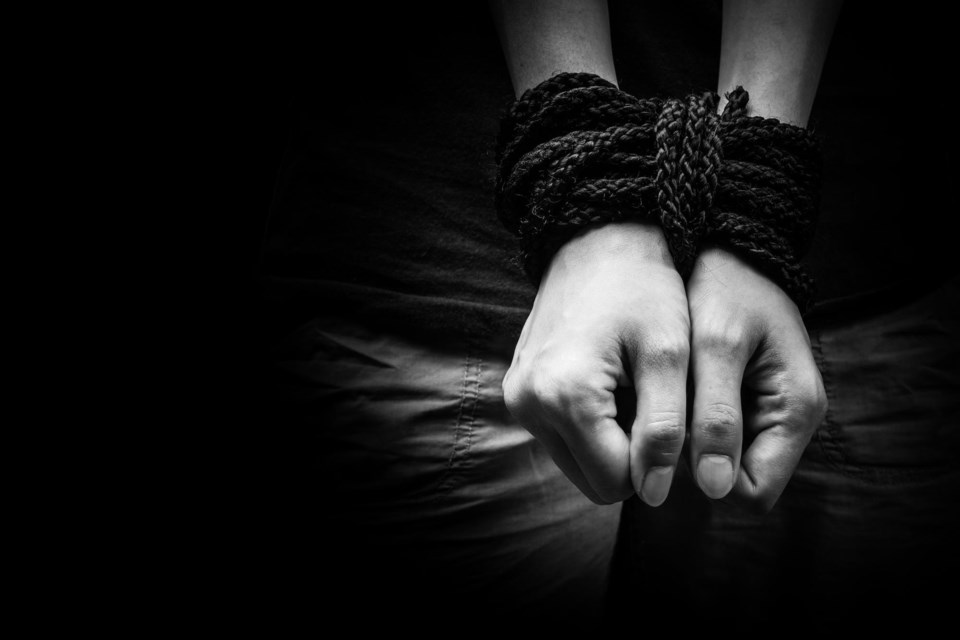Cristina Scarpellini of Angels of Hope Against Human Trafficking told Sudbury.com she spends much of her time figuratively pulling drowning women and girls from a river. With a new education program, she said she wants to walk upstream and show people why they are falling in the water in the first place.
But that can be a swim against the current as many people get their ideas about trafficking from movies and television, or from unconfirmed stories that make their way online, which she said significantly hamper her progress.
“When people look for the wrong thing, it takes away from all the education that we've done,” she said. “People think that, ‘if I'm going to be trafficked, that means I'm going to be abducted,’ and then they're blinded to how it really happens.”
A recent post from Greater Sudbury Police spoke to this issue, highlighting two social media posts regarding possible attempted abductions in the Sudbury area. In one, a girl was allegedly attacked with a syringe in a public washroom and in the other, an alleged attempted abduction from the New Sudbury Centre.
GSPS said that there was no evidence either event took place.
“The alleged incidents have not been reported to police and at this time, we cannot verify the legitimacy of these claims,” reads the post, but encourages possible victims to reach out.
The post then begins to discuss human trafficking, and what the signs are. It’s this information that needs to get out, Scarpellini told Sudbury.com.
“When people look for the wrong thing, it takes away from the education that we've done,” she said. “People think that, ‘if I'm going to be trafficked, that means I'm going to be abducted’, and then they're blinded to how it really happens.”
For this reason, Angels for Hope will be hosting an education session on May 17 from 6:30-8:00 p.m. at the Sudbury Indie Cinema (162 MacKenzie Street). Everyone, especially parents and young people, are welcome to attend and there will be vouchers for free beverages and snacks.
Scarpellini said many people have “the Hollywood version” of what they believe human trafficking is, but in the majority of cases here in Sudbury and across the province, the person being trafficked knows their trafficker.
“In my experience, that is the most common scenario that I see,” she said. “Usually, it is the Romeo pimp, the boyfriend pimp.”
Romeo or boyfriend trafficking sees the trafficker drawing a young person into their lives with promises of love and affection and access to a more glamorous lifestyle. “From the beginning, the trafficker strategically did these things to lure and groom his or her victim into you know, it's kind of like they walked them into the whole scenario,” Scarpellini said.
It often begins with a woman or girl being overwhelmed with love, attention and expensive gifts; promises of a better life.
“Somebody that's missing something in their life, has an empty void that they need filled,” said Scarpellini. “The trafficker will pick up on that and fill that empty void for their victim or survivor.”
Until they are trafficked, that is. Sometimes it begins with violence, said Scarpellini, but often it starts small. Sometimes the trafficker will force the victim into the act by saying they are owed money put out at the beginning of the relationship. That, or they will plead: “Oh, baby, you know, we have no money right now, do you think you can just do this one time,” said Scarpellini, imitating a common refrain from traffickers. “But it’s not just one time,” she said.
Scarpellini said the abuse and trauma victims of trafficking face is not always violence, it’s mostly psychological, which is why it is so difficult to rescue survivors: they don’t believe they’re worthy of rescue.
“Shame and guilt are huge factors that play into the healing process that they have to overcome in order to live a healthy life,” said Scarpellini.
While Scarpellini wishes there was a checklist for signs of trafficking, she said it’s not that simple.
“Traffickers are so creative, they come up with new ways to groom and lure youth,” she said.
For example, she said, a survivor she worked with was being trafficked at night; during the day, she went to school, and each night at 5 p.m. she ate dinner with her parents. Scarpellini said she used to tell people the signs were isolation, but that isn’t always the case.
So now, “I tell parents to go with their gut instinct,” she said. “If you feel something's wrong, report it.”
And you can either report to police, or speak to Angels of Hope first, if you are unsure of the situation. “Don't feel like you're wasting police's time or resources. If you feel something's wrong, it's better to be safe than sorry.”
When she teaches youth, Scarpellini focuses on prevention. Learning the signs, but also, learning about healthy relationships and how to know if you are in one, or not.
“We want to get it (trafficking) before it happens,” she said. “We need to stop just pulling people out of the river, we need to go upstream and find out why they're falling in.”
You can find more information about Angels of Hope Against Human Trafficking here.
Human trafficking can be reported by calling the Greater Sudbury Police Service at 705-675-9171, Sudbury Crime Stoppers at 705-222-8477, or the Canadian Human Trafficking Hotline at 1-833-900-1010. The Canadian Human Trafficking Hotline is a confidential, multilingual service that operates 24/7.
Human trafficking can also be reported to GSPS by filing a report through the online reporting system: www.gsps.ca/en/reporting/human-trafficking.aspx
Jenny Lamothe covers vulnerable and marginalized communities for Sudbury.com
